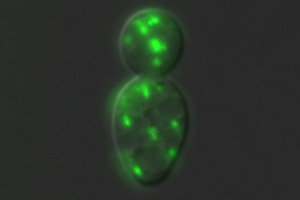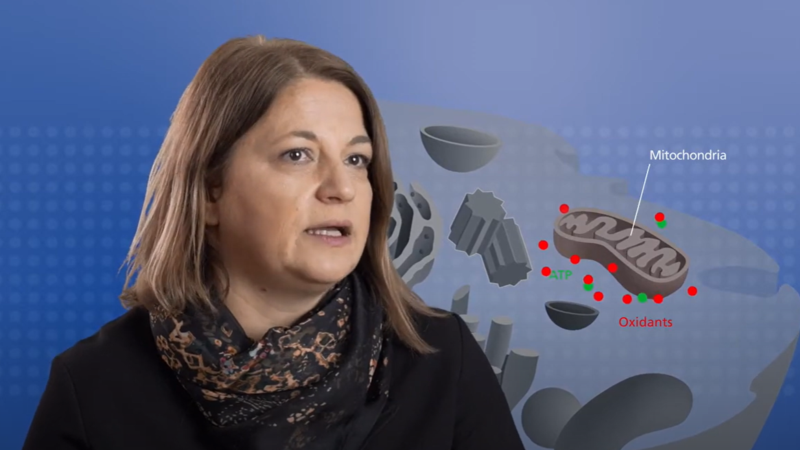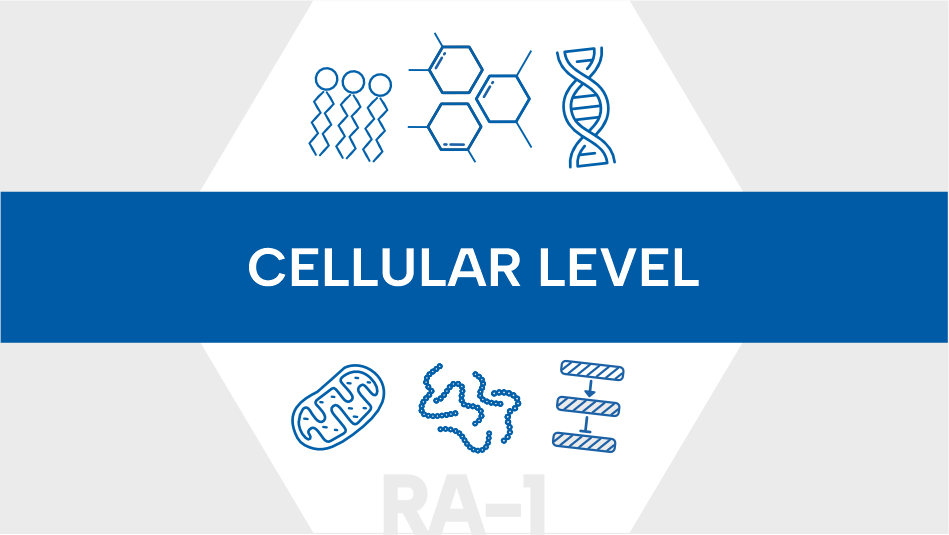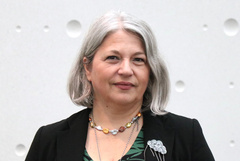The decline of physiological integrity at the cellular, tissue and organismal level with age culminates in functional defects and increased risk of aging-associated disease.
CECAD groups in Research Area 1 study cell autonomous mechanisms contributing to the decline of cellular function during aging, with the goal of obtaining fundamental molecular insights and identifying novel targets for intervention.
Several processes that are known for playing a role in determining a healthy lifespan are the focus of research, such as nutrient sensing, cellular responses to DNA damage, mitochondrial function or proteostasis surveillance mechanisms. Research groups examine the crosstalk between different cell autonomous processes during aging and how their disturbance causes aging-associated diseases such as neurodegeneration, cardiomyopathies and cancer.
These include the finding of the Valenzano group that relaxation of purifying selection prominently shapes genomes and is a prime candidate force molding the evolution of lifespan and the distribution of genetic variants associated with late-onset diseases in different species (Cui R et al., Cell. 2019). The Partridge group identified novel longevity promoting signal in the form of specific circular RNAs (circRNAs), circSfl that is regulated by the insulin signaling and sufficient to extent the lifespan (Weigelt CM et al., Mol Cell. 2020). The results from the Trifunovic group underlined the importance of the xenobiotic detoxification in the mitohormetic, longevity assurance pathway and identify KLF-1 as a central factor in orchestrating this response (Herholz M et al., Nat Commun. 2019). Several groups including the Rugarli group investigated the role of autophagy – the process of cellular self-recycling, and its regulator mTOR, in different physiological conditions. The Rugarli group showed the role of metabolic adaptation of liver mitochondria to nutrient availability that depends on a compartmentalized RNA-binding protein CLUH that controls both mTORC1 and G3BP signalling and ensures survival cell and organismal survival (Pla-Martin D et al., EMBO J, 2020). Other laboratories like the Vilchez group focus on the ubiquitin-proteasome system.

The Vilchez group found that aging a remodeling of the ubiquitinated proteome during aging triggered by increase deubiquitinase activity (Koyuncu S et al, Nature 2021). The subsequent accumulation of deubiquitinated proteins that cannot be degraded by the proteasome results in cell dysfunction across tissues. Several outcomes of CECAD groups highlighted the central role of mitochondria for the ageing-associated decline of cells and unraveled novel lipid signaling cascades preserving mitochondrial functions. The Antebi group found that lipid pools coordinate lysosomal and mitochondrial functions and preserve healthy aging in C. elegans (Tharyan et al., Nat Metab. 2020). The Bruning group demonstrated that the sphingolipid metabolism regulates mitochondrial fission and the fragmentation of the mitochondrial network as observed in aged cells (Hammerschmidt et al., Cell. 2019). The Langer group found that a phospholipid signaling cascade, regulated by nutrient signaling, triggers reshaping of the mitochondrial proteome by proteolysis and metabolically reprograms mitochondria facilitating tumor growth (MacVicar et al., Nature. 2019). The Trifunovic group, further focusing on mitochondria, found that the respiratory function of mitochondria depend on a novel salvage pathway ensuring the selective proteolysis of damaged parts of respiratory complex I and limiting deleterious production of reactive oxygen species (Szczepanowska et al., Nat Commun. 2020).



Prof. Dr. Aleksandra Trifunovic
Principal Investigator
Head of Research Area 1
aleksandra.trifunovic[at]uk-koeln.de
CECAD Research Center
Universität zu Köln
Joseph-Stelzmann-Str. 26
50931 Köln
Profile

Prof. Dr. David Vilchez
Principal Investigator
Head of Research Area 1